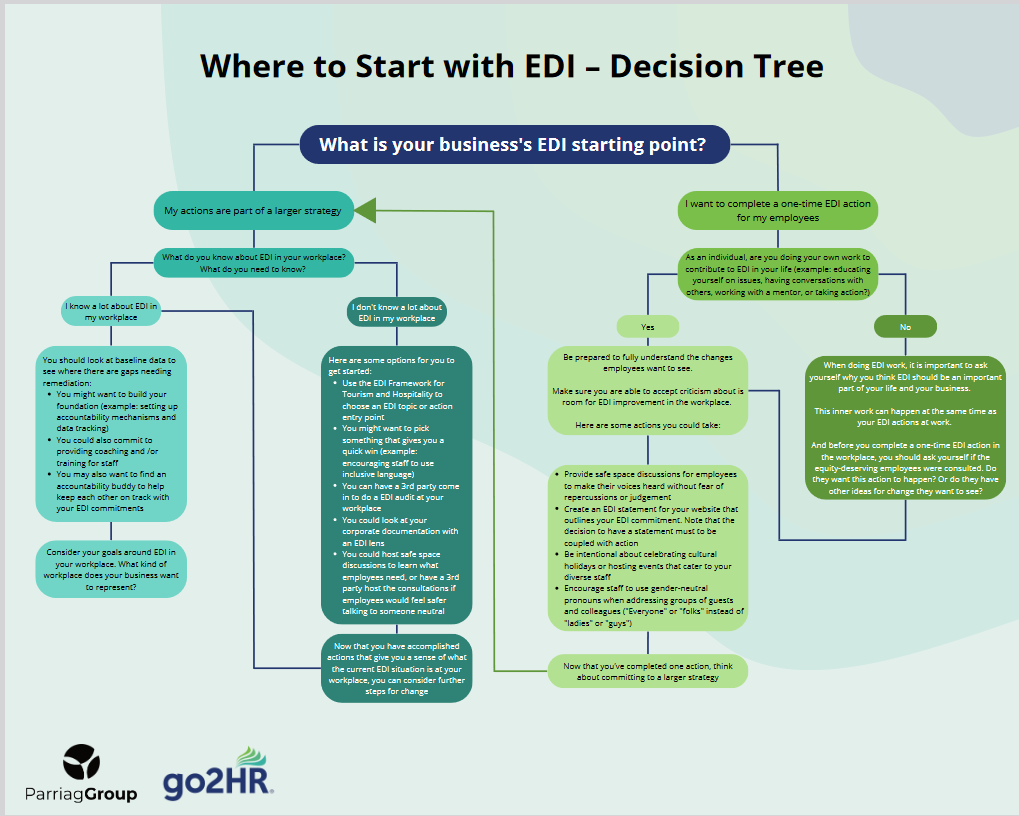February 12, 2024
Here are three reasons why a business should consider investing in EDI (Equity, Diversity, and Inclusion) training:
Improved Employee Performance and Collaboration: When employees are trained in EDI, they gain a better understanding of different perspectives and backgrounds. This understanding can enhance communication, teamwork, and collaboration among employees.
Enhanced Customer Relations: A diverse and culturally competent workforce is better equipped to understand and serve our diverse customer base. EDI training helps employees develop cultural awareness and sensitivity, enabling them to provide better service to customers from various backgrounds.
Attracting and Retaining Talent: In a competitive job market, potential employees often consider an organization’s commitment to diversity and inclusion. Investing in EDI training signals to current and prospective employees that the company values inclusivity and fairness. This can contribute to attracting a more diverse talent pool and improving employee retention.
Here are three reasons why employees benefit from EDI (Equity, Diversity, and Inclusion) training:
- Increased Cultural Competence:
- Understanding diverse perspectives, cultures, and backgrounds through EDI training enhances employees’ cultural competence. This knowledge allows them to navigate diverse work environments more effectively, communicate respectfully, and build positive relationships with colleagues and visitors from various backgrounds.
- Improved Communication Skills:
- EDI training typically includes communication strategies that promote inclusivity and avoid unintentional biases. Employees who undergo this training often develop improved communication skills, which are essential for building positive relationships with colleagues, and visitors from diverse backgrounds.
- Greater Job Satisfaction and Well-Being:
- Feeling valued and included in the workplace contributes to higher job satisfaction and overall well-being. EDI training helps employees understand the importance of equity and inclusivity, fostering a positive work environment. When employees feel respected and supported, they are more likely to be satisfied with their jobs and experience a greater sense of fulfillment in their professional roles.

